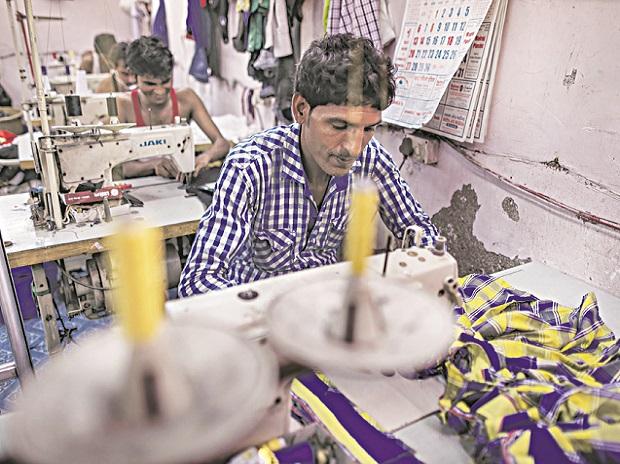Services, the biggest sector of India's economy, continued to contract for the third month in a row in July due to restrictions imposed by state governments to arrest the spread of the Covid-19 pandemic, showed a widely tracked IHS Markit purchasing managers' index (PMI) survey.
However, the rate of contraction fell as the index rose to 45.4 in the month from 41.2 in June. A PMI below 50 means de-growth.
Business activity, new orders and employment declined in July, according to a commentary associated with the survey. The latest data also pointed to an intensification of inflationary pressures across the sector, it said.
Respondents to the survey that reported lower output cited subdued demand conditions amid the Covid-19 crisis.
New work intakes also fell for the third month running in July, albeit at a softer pace than in June. In addition to challenging conditions domestically, firms observed a further deterioration in international demand for services. New business from abroad decreased at a sharp pace that was little-changed from June.
Consumer services was the worst-affected segment, noting the quicker declines in new orders and output out of the four categories for which contractions were recorded. Transport & storage was the only sub-sector which registered growth of business activity and sales.
Pollyanna De Lima, economics associate director at IHS Markit, said, "The current Covid-19 environment continued to weigh on the performance of the service sector that is so crucial to the Indian economy."
In line with sustained falls in new work, there was a further reduction in service sector jobs during July. Employment contracted for the eighth consecutive month, albeit at amoderate pace that was slower than that seen in June.
Another factor weighing on jobs was an overall view that business activity will decline over the course of the coming 12 months. Companies were pessimistic for the first time in a year.
The downbeat assessment for output stemmed from concerns over the pandemic, margins and inflation.
For instance, input costs increased further in July. Survey participants reported higher prices paid for a wide range of items such as fuel, medical equipment and raw materials. The overall rate of inflation quickened from June and outpaced its long-run average.
Output rates also rose at a quicker pace in July, the fastest in the current five-month sequence of increase, but here the rate of inflation was below its long-run trend. Companies that hiked their fees cited the partial pass-through of greater cost burdens to clients.
While the quickest increase in input costs was recorded in the real estate and business services category, output inflation was most pronounced in the transport & storage segment.
Finally, service providers signalled a renewed increase in outstanding business volumes, following the first decline for 13 months in June. The rate of backlog accumulation was only slight.
"Uncertainty over when the pandemic will end, as well as concerns about inflationary pressures and financial troubles, dampened business confidence in July. Service providers were pessimistic towards the outlook for business activity for the first time in a year. Downbeat assessments and ongoing declines in new work caused another round of job shedding in the service sector," De Lima said.
With manufacturing PMI showing an expansion in July, the data pointed to a third consecutive monthly decline in Indian private sector activity. The Composite PMI Output Index rose from 43.1 in June to 49.2 in July. It, however, pointed to the slowest rate of reduction over this sequence.
 Dear Reader,
Dear Reader,
Business Standard has always strived hard to provide up-to-date information and commentary on developments that are of interest to you and have wider political and economic implications for the country and the world. Your encouragement and constant feedback on how to improve our offering have only made our resolve and commitment to these ideals stronger. Even during these difficult times arising out of Covid-19, we continue to remain committed to keeping you informed and updated with credible news, authoritative views and incisive commentary on topical issues of relevance.
We, however, have a request.
As we battle the economic impact of the pandemic, we need your support even more, so that we can continue to offer you more quality content. Our subscription model has seen an encouraging response from many of you, who have subscribed to our online content. More subscription to our online content can only help us achieve the goals of offering you even better and more relevant content. We believe in free, fair and credible journalism. Your support through more subscriptions can help us practise the journalism to which we are committed.
Support quality journalism and subscribe to Business Standard.
Digital Editor

RECOMMENDED FOR YOU